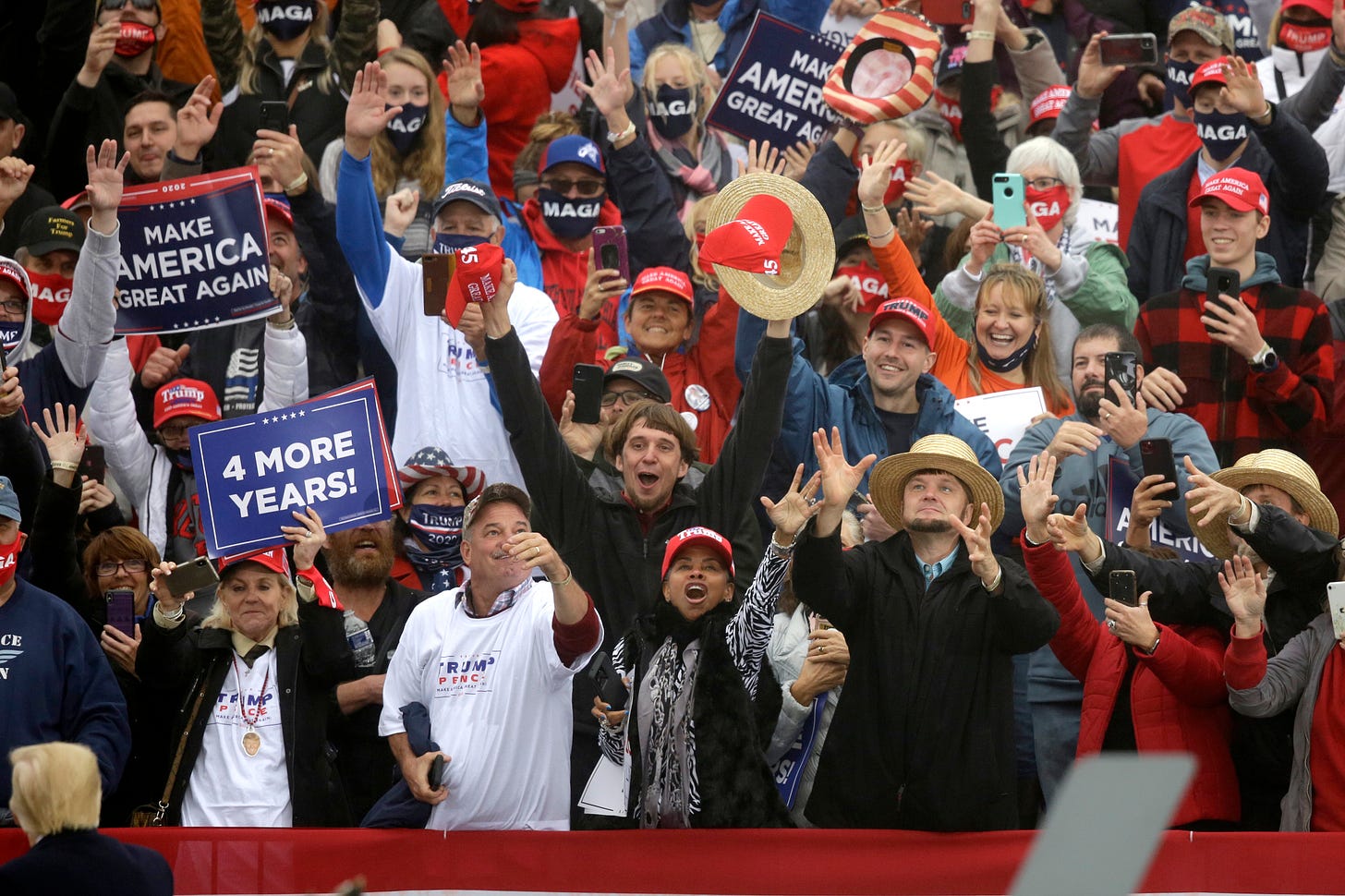
Related highlights:
Anti-Trump group founded by disgruntled 'GOP consultants' predicts two more terms for Trump
Justice ACB's swearing-in sent MSNBC hosts into full meltdown mode
—
The polling firm that predicted the 2016 presidential election correctly has some good news this week for President Trump.
A new survey by the Trafalgar Group shows the president taking a tiny lead in the all-important swing state of Pennsylvania, which is worth 20 electoral votes.
The polling firm’s latest data show Trump slightly ahead of Democratic presidential nominee Joe Biden, 48.4% to 47.6%. It is not much, and it is not even half the 3-point margin of error, but at this point, and considering how state polling is trending, Trump and his campaign are likely happy to take whatever good news they can get.
The poll, which was conducted between Oct. 24 and Oct. 25, surveyed 1,076 likely voters. Trafalgar's latest polling shows 2.2% of the state's vote going to Libertarian presidential nominee Jo Jorgensen, 1% is “undecided,” and 0.7% going to “someone else.”
Black and Asian people overwhelmingly support Biden, the poll found, with tallies of 70.9% and 78.5%, respectively. But Hispanics only gave Biden 51.3%, with 40.5% supporting Trump — a reflection of fears voiced elsewhere among Democrats that Biden is lagging among Hispanic voters. Meanwhile, 52% of white respondents support Trump, while 40.6% support Biden. White people account for 81.6% of Pennsylvania's total population, while black people account for 12%, Hispanics or Latinos account for 7.8%, and Asians account for 3.8%, according to the Census Bureau.
Though it is just one poll and though it runs counter to several recent polls of Pennsylvania, the Trump campaign likely will take some comfort in knowing that the Trafalgar Group specifically is giving it a slight edge in the Keystone State.
Trafalgar has the distinction of being one of the only firms to have called the 2016 presidential election accurately. Even other polling groups called it crazy. Trafalgar correctly called Pennsylvania, Florida, Michigan, and North Carolina for Trump when other pollsters showed then-Democratic presidential nominee Hillary Clinton winning. More importantly, Trafalgar predicted in the afternoon of Election Day in 2016 that Trump would win the Electoral College with 306 votes, which is exactly what happened.
Trafalgar attributes its success to its curious style of polling. Instead of asking outright whom respondents support, the group accounted for the “shy” or “hidden” voter, those who misled or otherwise avoided giving pollsters straight answers for fear of being branded a rube, a villain, a deplorable, etc. As a workaround to the “hidden” voter problem, Trafalgar discovered its numbers changed dramatically, and were more accurate, when it asked respondents to reveal whom their neighbors would be supporting.
“I grew up in the South, and everybody is very polite down here, and if you want to find out the truth on a hot topic, you can’t just ask the question directly," Trafalgar senior strategist Robert Cahaly told Politico in 2016. "So, the neighbor is part of the mechanism to get that real answer."
He added, “In the 11 battleground states, and three non-battleground, there was a significant drop-off between the ballot test question and the neighbors question. The neighbors question result showed a similar result in each state: Hillary dropped, and Trump went up across every demographic. Hillary's drop was between 3 and 11 [percentage points], while Trump's increase was between 3 and 7 [points].”
This pattern “was a constant” regardless of whether the group was polling in Pennsylvania, Nevada, Utah, or Georgia, Cahaly said.
In 2018, Trafalgar predicted then-Georgia Secretary of State Brian Kemp would best Stacey Abrams in the state’s gubernatorial race. Though the group was correct, its projections at one point also showed Kemp up by 12 points. He went on to win the race, with 50.2% to Abrams’s 48.8%. So, a grain of salt and all that.
What does it all mean? You will have to wait until Election Day to find out, and possibly well beyond. Because after 2016, there is no way I am predicting how this presidential race ends.



